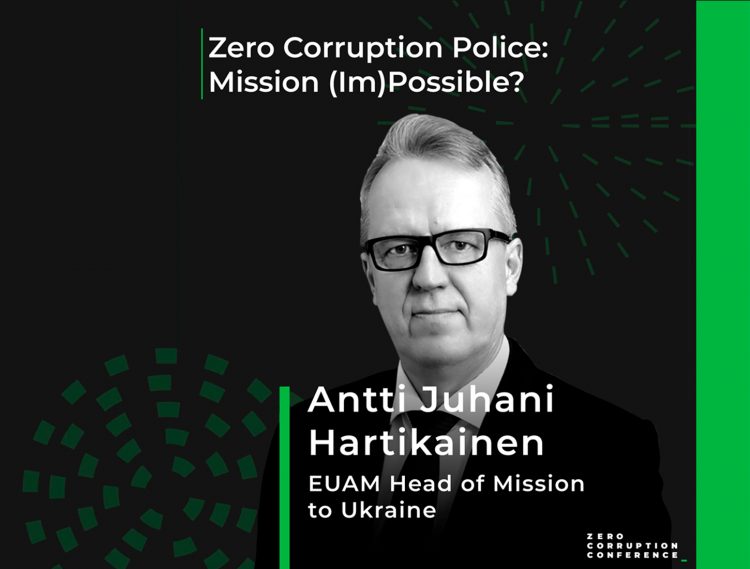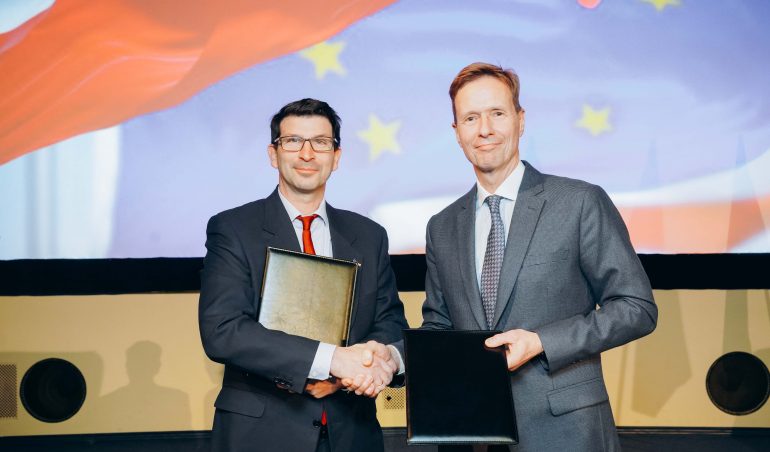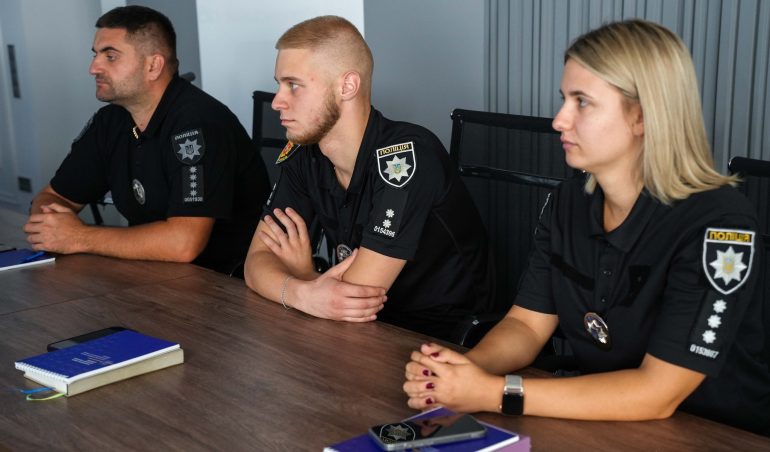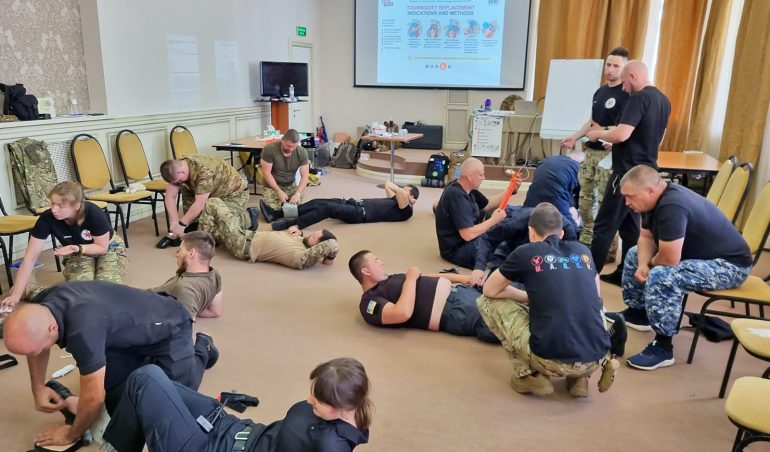Zero Corruption Police: speakers ask if true reform is ‘mission impossible’
June 17, 2020
‘Zero Corruption Police: Mission (Im)Possible?’ was the headline given to an online conference that this week gathered prominent Ukrainian and international experts to address anti-corruption efforts in the world. The conference was organised by Ukraine’s foremost English-language media outlet, Kyiv Post, and focused on police corruption in Ukraine.
The Head of European Union Advisory Mission (EUAM), Antti Hartikainen, pointed to some achievements of the National Police since the Maidan Revolution of Dignity – such as the creation of the Patrol Police – but emphasised the need to deepen training programmes for officers, and remarked that he would have liked to have seen representatives from Ukraine’s Ministry of Internal Affairs and the National Police of Ukraine at the conference also.
The Minister of Internal Affairs of Finland, Maria Ohisalo, remarked that it takes three years to become a police officer in Finland. It is the period when the future police officers start to build trust with citizens, while working in the field. Between 80% and 90% of Finnish citizens trust the police.
“The key factor for eradication of corruption in the police and maintaining the trust of people is to stay open. People in marginalized positions tent not to trust police or other authorities,” said Ms Ohisalo. “There are 7,300 police officers in Finland. Force is always the last option for Finnish police to use, while the first is dialogue.”
Mr Hartikainen underlined the importance for police to be impartial and stay free of political influence.
“We have good cooperation and acceptance of the advice provided by the Mission during the drafting process of the NPU Development Strategy – 2023. This Strategy provides the best European practices, but it is still pending the approval of the Ministry of Internal Affairs.”

Mr Hartikainen also encouraged the National Police to fully commit to key reform initiatives such as the Serious Organized Crime Threat Assessment (SOCTA), Intelligence-led Policing, and the merger of functions of operatives and investigators in criminal investigations. He said that the success of reforms in the Civilian Security Sector depends on speed and appetite for change.
“Reform of Ukraine’s various law-enforcement agencies must run in parallel, but I think it is fair to say that without reform of the Security Service (SSU) there will be no successful comprehensive reform,” he said. “The reform of the SSU therefore facilitates other reforms so it is really crucial.”
Other keynote speakers at the conference included Matilda Bogner, head of UN Human Rights Monitoring Mission to Ukraine; Khatia Dekanoidze, Chief of Ukrainian National Police 2015-2016; Anastasia Radina, head of the Anticorruption Committee in Parliament and MP from Sluga Narodu; Oleksandra Ustinova, member of law enforcement committee in parliament and MP from Golos; Tetiana Pechonchyk, Head of ZMINA Human Rights Centre NGO; and Matthew Schaaf, Project Director at Freedom House, Ukraine.





